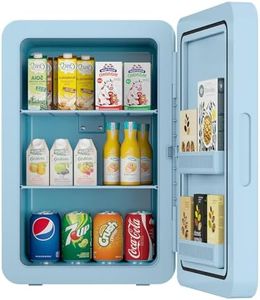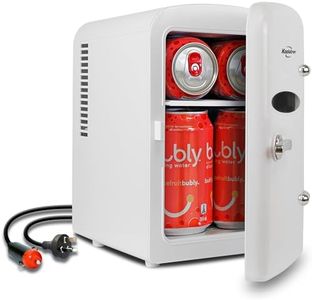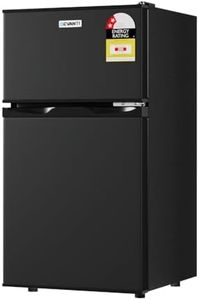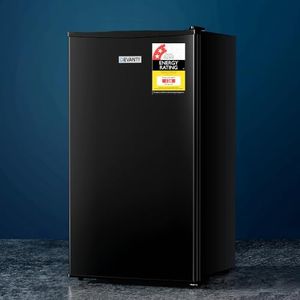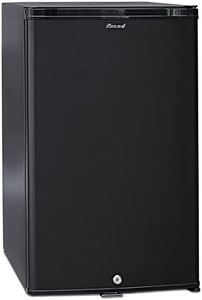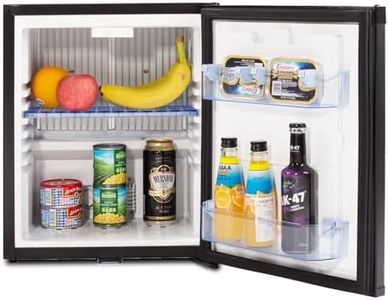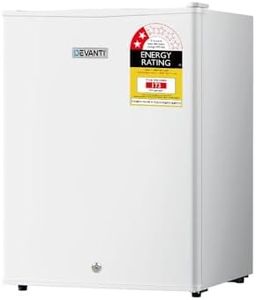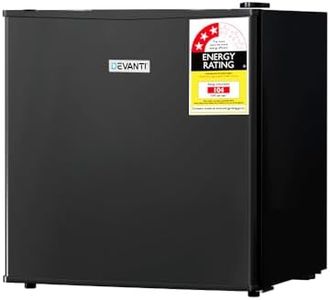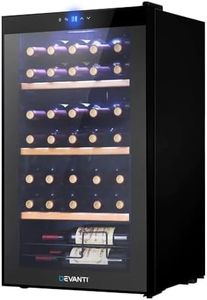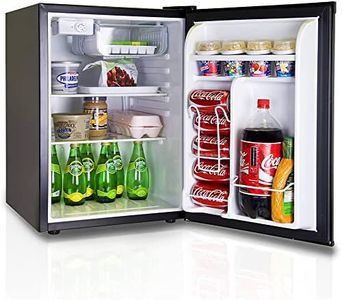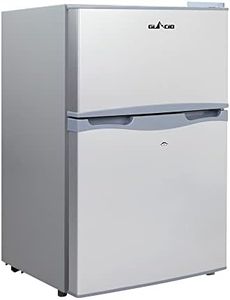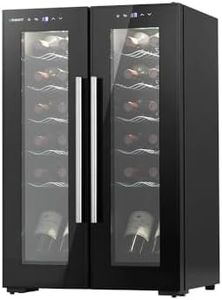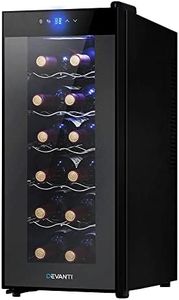We Use CookiesWe use cookies to enhance the security, performance,
functionality and for analytical and promotional activities. By continuing to browse this site you
are agreeing to our privacy policy
10 Best Mini Fridge
From leading brands and best sellers available on the web.By clicking on a link to a third party's website, log data is shared with that third party.
Buying Guide for the Best Mini Fridge
Choosing the right mini-fridge can make life a lot more convenient, whether you need it for a dorm room, bedroom, office, or small apartment. Since there are many types and sizes, the best one for you will depend on your space, what you want to store, and how you plan to use it. Understanding the main features and specs will help you find a mini-fridge that fits your needs, gives you reliable cooling, and makes the most of your space.Capacity (Cubic Feet or Liters)Capacity tells you how much the fridge can hold, usually in cubic feet or liters. It's crucial because it determines how much food, drinks, or snacks you can store at once. Models can range from very compact units holding a six-pack of soda to ones that are almost like a small kitchen fridge. Small capacities under 2 cubic feet are best for basic needs like beverages or a few snacks. Mid-size fridges around 2-3.5 cubic feet can fit more, including some small groceries and leftovers. Larger models above 3.5 cubic feet can even fit taller bottles and small freezer sections. To choose the right capacity, think about how much you plan to store regularly and match the fridge size accordingly—don’t forget to consider the available space in your room as well.
Dimensions and PlacementDimensions describe the physical size of the mini-fridge and are usually given in height, width, and depth. It's important because you need to ensure the fridge will fit in your chosen spot and leave enough room for the door to open. Shorter, narrower models are easier to tuck under a desk or counter, while taller or wider fridges may require more dedicated space. Always compare your available space (including door clearance and ventilation needs) with the fridge’s dimensions to avoid issues after delivery.
Freezer CompartmentSome mini-fridges come with a small freezer compartment, while others are fridge-only. The freezer is useful if you want to store frozen meals, ice cream, or ice, but it does take up some fridge space and may be less effective than a full-size freezer. Mini-fridges with a true separate freezer section generally perform better for freezing, whereas smaller models with just a freezer shelf are mainly for making a little ice. Decide whether you actually need to freeze items, or if you're just keeping drinks and snacks cool—this will guide you between fridge-only or combination units.
Temperature ControlsTemperature controls let you adjust how cold your mini-fridge gets, and the type of control can range from simple dials to digital settings. This feature is important because different food and drinks are best stored at specific temperatures. A basic dial is usually enough if you’re storing drinks and snacks, while more precise digital controls matter if you need consistent temperatures for medications, certain foods, or delicate items. Choose a model with the level of adjustability you need based on what you plan to store.
Shelving and Storage OptionsInside a mini-fridge, the shelving and storage solutions like adjustable shelves, door bins, and can dispensers make a big difference in how much you can fit and how organized you stay. Adjustable shelves and removable trays are great if you’ll sometimes store taller items or want the flexibility to reorganize space. If you mainly store bottles and cans, look for door storage or specific organizers. Consider your typical items—taller bottles, leftovers, snacks, or cans—and pick shelving options that fit those needs best.
Energy EfficiencyEnergy efficiency is about how much electricity the fridge uses. Since mini-fridges may be running all the time, a more efficient model will save on energy bills and is better for the environment. Some fridges have energy certifications or an 'energy star' label indicating better efficiency. If the fridge will be on 24/7 (like in a dorm or office), energy-efficient choices provide the most long-term benefit. Check the spec sheet for estimated energy use and choose efficient models whenever possible for frequent, long-term use.
Noise LevelMini-fridges make some noise as they run, and the amount of sound can be an important factor, especially in bedrooms or quiet offices. While regular compressor fridges are usually a steady hum, some compact models use a different cooling method to reduce noise. If you’re sensitive to noise or will keep the fridge close to sleeping or working areas, look for customer reviews mentioning quiet operation, or check if the manufacturer lists a decibel rating—lower numbers are quieter. Match noise level to your sensitivity or where you’ll place the fridge.
